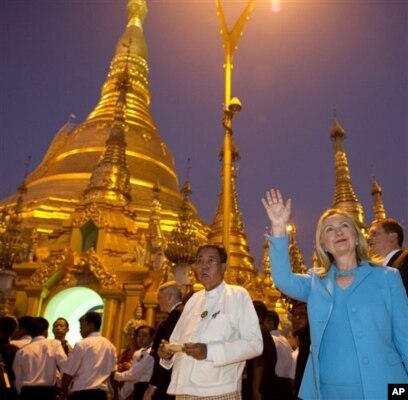

In response to the political developments in Burma in April 2013 the EU lifted all sanctions against Burma, except for the arms embargo, which has been extended for a year every year since 2013. In April and May 2012, the EU passed a number of resolutions, including Council Decision 2012/225/CFSP, suspending certain sanctions on the Burmese government, but maintaining the arms embargo until 30 April 2013. The arms embargo was extended and amended by Common Position 757/2001/CFSP until 29 April 2002. Since then the embargo has remained in force through regular motions including on 12 April 2011 by Council Decision 2011/239/CFSP until 30 April 2012. In April 2000, the Council agreed on Council Regulation (EC) No 1081/2000 that supplemented the Common Position by adding a ban on the export from the EU of any equipment that might be used for internal repression or terrorism. However, there is no reference in earlier EU documents to the embargo which was, it is assumed, established through an informal decision among the Member States. Contracts entered into prior to the date of entry into force of the embargo are not affected by this common position. The embargo also covers spare parts, repairs, maintenance and transfer of military technology. This embargo covers weapons designed to kill and their ammunition, weapon platforms, non-weapon platforms and ancillary equipment. Exceptions may be made for projects and programmes in support of human rights and democracy as well as those concentrating on poverty alleviation and, in particular, the provision of basic needs for the poorest section of the population, in the context of decentralized cooperation through local civilian authorities and Non-Governmental Organisations (ii) an embargo on arms, munitions and military equipment and suspension of non-humanitarian aid or development programmes. (i) expulsion of all military personnel attached to the diplomatic representations of Burma/Myanmar in Member States of the European Union and withdrawal of all military personnel attached to diplomatic representations of the Member States of the European Union in Burma/Myanmar The Common position reaffirms the following measures that had already been adopted in 1990 and confirmed in a Declaration by the General Affairs Council on 29 July 1991: The European Union established an arms embargo on Burma at some point prior to the agreement on a Common Position on Burma/Myanmar 1996/635/CFSP in October 1996. In reaction to widespread violence and human rights violations by the military and security forces against minority groups in Rakhine, Kachin and Shan States the EU reconfirmed and widened the scope of the arms embargo.

However, the arms embargo was maintained. In 2012 most EU sanctions on the Burmese government were lifted.

Subsequent resolutions have extended the embargo to cover equipment that might be used for internal repression or terrorism. The embargo covers arms, munitions and military equipment. Government did not adopt the name, which is a derivative of the Burmese short-form name Myanma Naingngandaw," the Factbook says.The EU has maintained an arms embargo on Burma in various forms since 1996 and the early 1990s. "Since 1989 the military authorities in Burma have promoted the name Myanmar as a conventional name for their state the U.S. The CIA World Factbook almost ignores the military rulers preferred name. Government likewise uses 'Burma,' " the State Department says. "Out of support for the democratic opposition," and its victory in a 1990 parliamentary election - the results of which were annulled by the military rulers - "the U.S. is among the nations that choose not to refer to the nation as Myanmar. 'Governments that agree with this stance still call the country Burma.' "

'Local opposition groups do not accept that, and presumably prefer to use the old colloquial name, at least until they have a government with popular legitimacy,'. "Richard Coates, a linguist at the University of Western England, says adopting the traditional, formal name is an attempt by the junta to break from the colonial past. If Burmese people are writing for publication, they use 'Myanmar', but speaking they use 'Burma', he says. They have both been used within Burma for a long time, says anthropologist Gustaaf Houtman, who has written extensively about Burmese politics. "Burmah, as it was spelt in the 19th Century, is a local corruption of the word Myanmar.


 0 kommentar(er)
0 kommentar(er)
